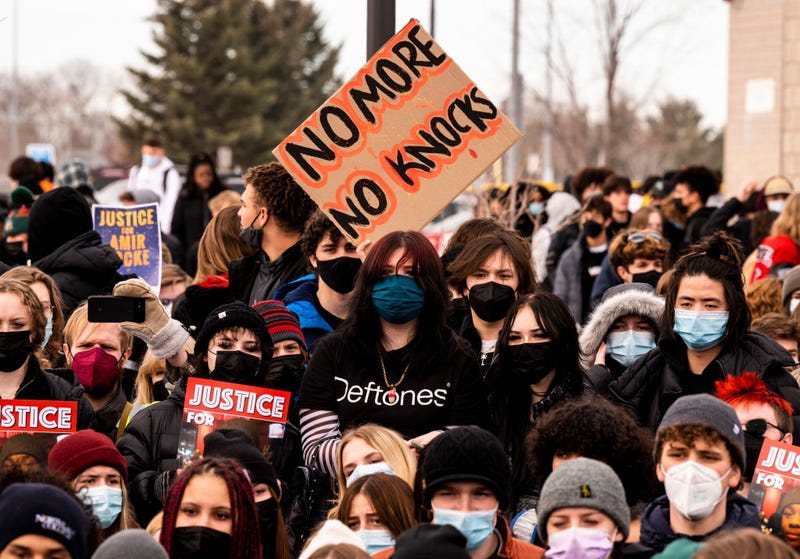
On Wednesday morning, Hennepin County Attorney Michael Freeman and Minnesota Attorney General Keith Ellison announced that they will not file criminal charges in the death of Amir Locke.
“Amir Locke’s life mattered,” a joint press release from the two prosecutors said. “He was a young man with plans to move to Dallas, where he would be closer to his mom and – he hoped – build a career as a hip-hop artist, following in the musical footsteps of his father.”
After reviewing all possible legal actions, the two attorneys said that there was not enough admissible evidence to file any criminal charges.
Defense attorney Joe Friedberg who is not affiliated with the case tells WCCO there is no possible way to charge the officers based on the law. Speaking to the Chad Hartman Show, Friedberg said Freeman and Ellison made the right decision.
“They made a statement that wasn't strong enough because there's no evidence that indicates there should have been charges in this case,” Friedberg says. “None. “Once this search warrant was signed on a no-knock warrant, the police officer has complete legal coverage on this. The only question is whether or not the warrant should have been signed in the first place, but the police officers hold no blame whatsoever.”
Minneapolis has since eliminated the no-knock warrants although they have not totally eliminated the need for immediate entry in situations deemed “extremely dangerous”.
Amir Locke was asleep in the apartment policed entered on in February while serving a warrant. Locke was not a suspect and did have a gun on him that allegedly lead to officers shooting him.
Friedberg says it’s just an unfortunate case.
“It's a terrible thing to happen to an individual, but that does not mean that anybody who acted in this case violated the law,” Friedberg told Chad Hartman. “There's not a remedy for every wrong in this world. There never has been. There never will be. The police officer is doing exactly what he should. You've got a no-knock warrant because the judge has perceived from the information he received, that there would be danger to the police officer upon making entry. That's the reason he signed the no-knock warrant. The police officer made his entry and is faced with an individual who is getting up with a gun in his hand. If you don't shoot, then it's too late.”
Friedberg adds from a prosecution standpoint, it shouldn’t matter if Locke pointed the gun at the officers or was just holding it.
“Apparently the gun is in his hand,” explains Friedberg. "This is a situation where most people with guns that are basically in your direction are people who need to be shot. If you're a police officer, it's a reaction that takes place instantaneously.”
As for the end of no-knock warrants in Minneapolis, Friedberg agrees with eliminating them due to the dangers involved for both police and anyone inside the residence.
“In my estimation, that's a good thing,” Friedberg told WCCO. “They're not only dangerous to the inhabitants of the places of being searched, but they're dangerous to police officers too. There are many police officers who will knock anyway when they have a no-knock warrant, because it's a safer thing to do.”
Friedberg adds that even if police are trying to catch criminal activity, especially drug dealers, before evidence can be destroyed, it’s not a good reason to continue no-knock warrants.
“Lives are more important than busting people for drugs. I think this new policy is going to be correct.”


